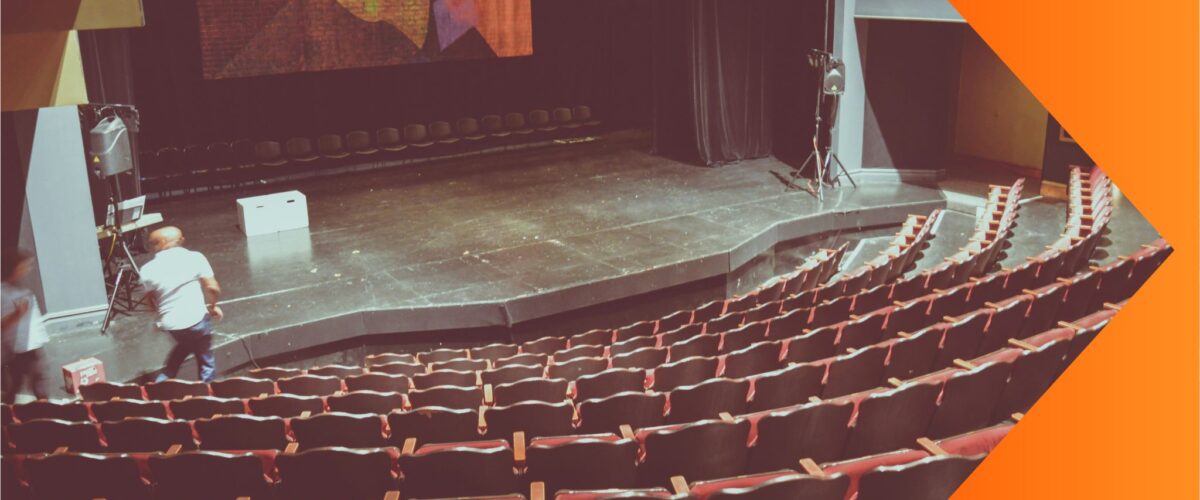Theatre classes are a form of artistic education that combine the development of expression, self-confidence, and communication skills. Children learn acting, diction, stage movement, and how to work with a script, all while discovering the magic of theatre. It’s a space where young talents can develop their personalities, and every role becomes a new adventure into themselves.
When Can a Child Start Theatre Classes?
Acting workshops are tailored to the expressive and emotional abilities of children at different ages:
- Ages 4–6 (preschoolers): Sessions are play-based and focused on movement. Children engage in role-playing, imitating animals, expressing emotions through movement and sound. They learn basic body expression and begin to understand various emotions and how to express them. The classes include lots of theatrical games and improvisations.
- Ages 7–10 (early primary school): First elements of acting are introduced – working with short texts, creating characters, and learning basic diction and voice projection. Children prepare short scenes and fairy tales, learning stage cooperation and overcoming stage fright.
- Ages 11–14 (grades 5–8): Classes cover more advanced acting techniques – character analysis, voice training, stage movement, improvisation. Children work on full theatre performances, explore different dramatic genres, and learn the basics of directing.
- Ages 15+ (high school): Workshops resemble those in theatre schools – professional acting techniques, theatre history, dramaturgical analysis, and preparation for entrance exams to performing arts schools. Teens develop their personal acting style and begin to specialize in chosen areas.
Why choose drama lessons for your child?
Acting workshops are an investment in your child’s personal growth and social skills:
- Self-confidence and courage: Performing on stage helps overcome fear, builds self-esteem, and improves public speaking.
- Communication skills: Working with scripts, diction, and voice projection enhances clarity and articulation.
- Emotional intelligence: Playing various roles fosters empathy and emotional awareness.
- Creativity and imagination: Improvisation and character building stimulate creative thinking and artistic expression.
- Teamwork: Theatre productions require coordination, responsibility, and mutual support.
- Focus and memory: Memorizing lines and focusing during performances enhance cognitive functions.
- Stress management: Regular performances teach how to handle pressure and turn nerves into positive stage energy.
What Do Typical Theatre Classes Look Like?
Classes are held in theatre rooms or multi-purpose spaces equipped with mirrors, open movement areas, and basic stage equipment. Groups usually consist of 8–15 children, allowing for varied group work.
A standard 60–90 minute session typically includes:
- Theatre warm-up – voice, movement, concentration, and relaxation exercises (10–15 min)
- Acting techniques – voice projection, diction, facial and body expression (15–20 min)
- Improvisations and etudes – building characters, creative exercises (20–25 min)
- Text work – reading roles, character analysis, rehearsal (20–30 min)
- Wrap-up and feedback – discussion, encouragement, and next steps (5–10 min)
Classes are usually held once or twice a week. Intensive workshops during school breaks and theatre camps with full performances are also popular.
What to Look for When Choosing a Theatre School?
Choosing the right theatre school is key to your child’s artistic and emotional development:
- Instructor qualifications – Do they have a background in acting or theatre? Experience with children? A sensitive, pedagogical approach?
- Atmosphere and philosophy – Is there a supportive environment, no judgment, respect for individuality, and positive reinforcement?
- Teaching methods – Are the classes age-appropriate, fun, and progressively structured to allow individual development?
- Facility quality – Is the space appropriate for movement, equipped with mirrors, props, and good acoustics?
- Curriculum – Does it include varied acting techniques, dramatic genres, and real performance opportunities?
- Performance opportunities – Does the school organize shows for parents, take part in festivals, and give children the chance to present their work?
- Individual development – Does the instructor recognize talent, offer extra challenges, and support personal stage growth?
Costs of Drama Classes
Prices vary depending on the school’s reputation, instructor qualifications, and program:
- Ongoing classes (monthly): 120–450 PLN for 4 sessions
- Weekend workshops: 100–200 PLN for 3–4 hour classes
- Theatre day camps (school breaks): 500–1200 PLN per week
- Theatre camps (overnight): 1500–4000 PLN per week, depending on standards and program
- Private lessons: 80–250 PLN per hour
- Casting preparation workshops: 150–400 PLN for an intensive weekend course
- Performances/festival participation: Often included, occasionally extra 50–200 PLN
Most theatre schools provide basic costumes and props at no extra charge. Family discounts, long-term packages, and free trial classes are common. Some schools also offer scholarships for talented children from low-income families.
Theatre classes are an investment in your child’s personality – one that brings lifelong benefits. Whether your child dreams of an acting career or just needs a confidence boost, give them the chance to discover the magic of theatre. Skills developed on stage are useful in every area of life – from school presentations to future professional appearances.
👉 Check out current theatre class offers in your city:
🔗 **See available classes »
#theatreclasses #childrenactivities #actingforkids #dramaworkshops #selfconfidence #expression #publicspeaking #stagepresence #creativity #Bookkido #holidaycamps #theatreschool
#TheatreWarszawa #TheatreKraków #TheatreWrocław #TheatrePoznań #TheatreGdańsk #TheatreŁódź #TheatreSzczecin #TheatreBydgoszcz #TheatreLublin #TheatreKatowice




